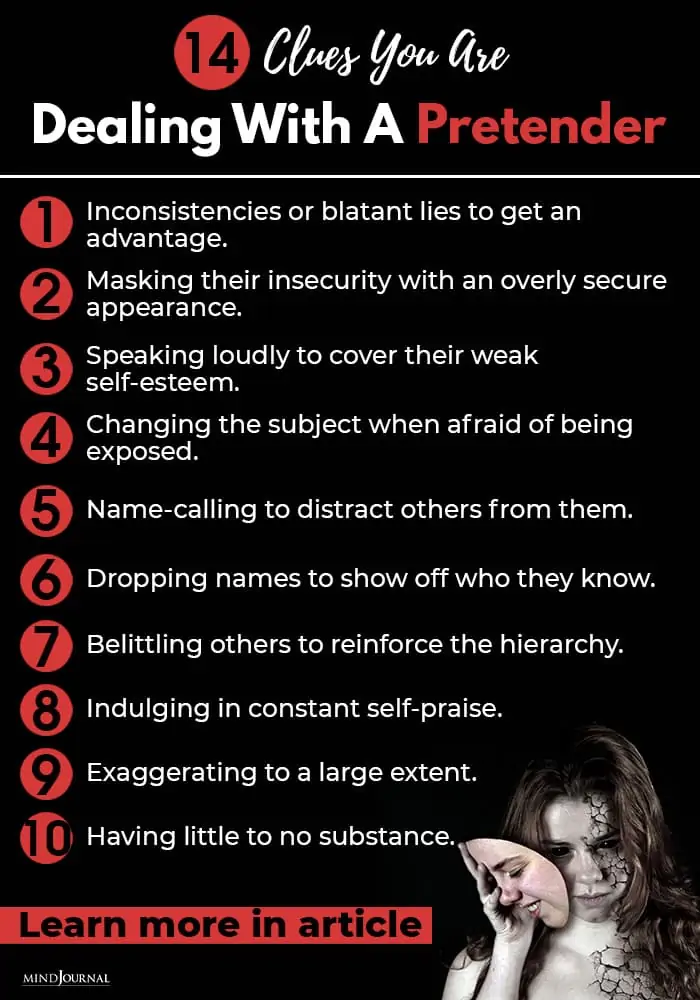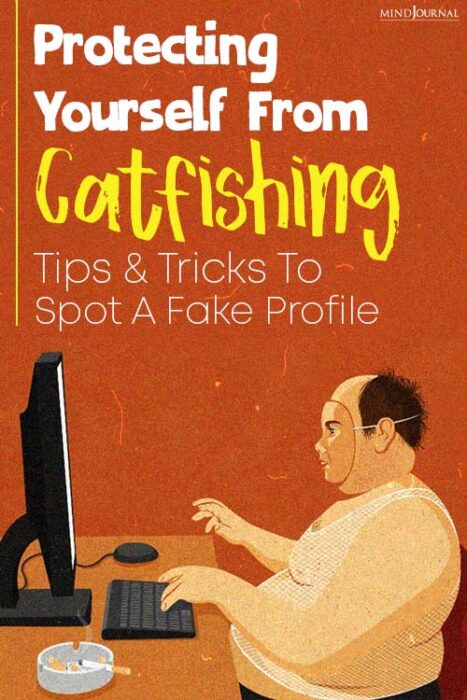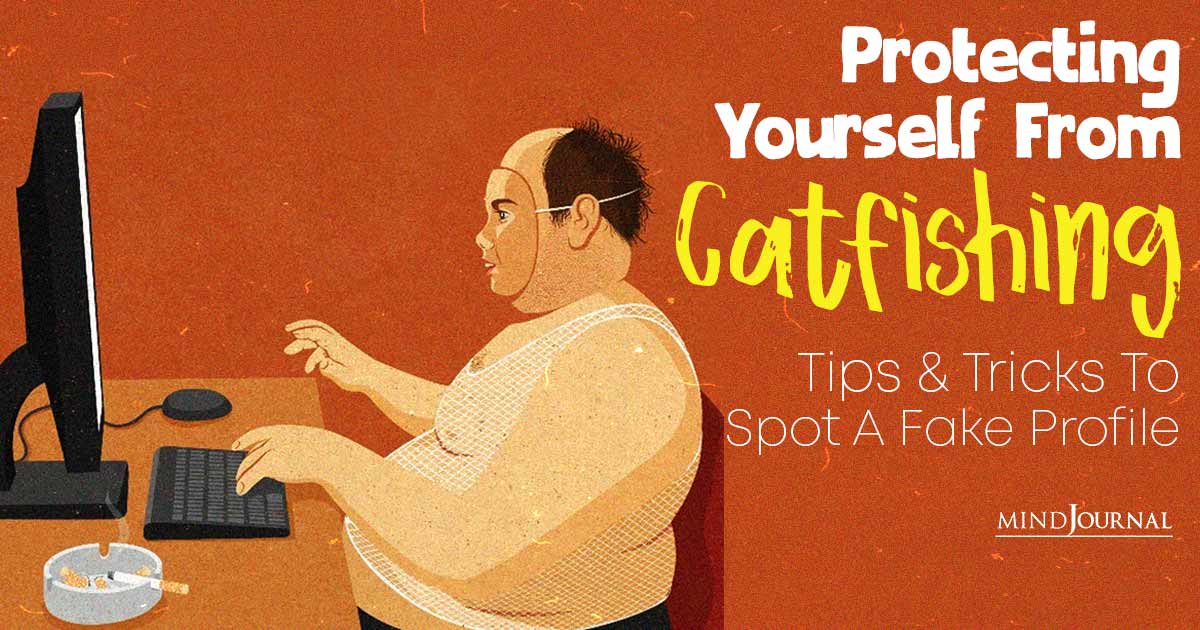Have you ever pretended to be someone you are not? Maybe to prank a friend or to get out of a tricky situation? Unfortunately, some people on the internet pretend to be someone they are not to scam, manipulate and abuse others.
When someone uses a fake personality online with malicious intent, it is called catfishing.
What is catfishing?
Catfishing is when someone creates a fake identity on the internet to trick others into believing they are someone else. Their intention is to deceive and manipulate others. This can happen on social media, dating apps, or other online platforms. The person can pretend to have a different personality or background.
“Catfishing is a modern phenomenon in which individuals present themselves online as someone they are not as a means of engaging with others through an idealized avatar,” explains a 2022 study.
The catfisher pretends to be someone else by using fake pictures, names, and personal information to gain the trust of their victim. The purpose of deceiving can vary, but often it involves tricking the victim into giving away personal information or money, or to manipulate their emotions for personal gain.
The goal is usually to build a relationship with the victim, gain their trust, and sometimes even scam them out of money or personal information. It can be very harmful, so it’s important to be careful when talking to people online and make sure they are who they say they are.
Related: 5 Signs A Seemingly Nice Person Secretly Has Some Cruel Intentions
What does it mean to be catfished
To be catfished means to be deceived by someone who has created a fake online identity to manipulate or defraud you. The term comes from a 2010 documentary called “Catfish,” where a man was tricked into an online relationship with a woman who turned out to be fake.
Getting catfished online has become all too common in today’s digital world as numerous individuals, including online predators, engage in this fraudulent activity to deceive others. They create a fake online identity by using false information and pretending to be someone they’re not.
Perpetrators of this harmful practice not only target adults but children as well on the internet. It can be quite nefarious, as the person behind the false identity may attempt to establish a relationship with the victim and even scam them out of money or personal information.

It is a form of online deception which can have various motivations, such as –
- Seeking financial gain
- Personal satisfaction
- Revenge
- Sense of power or control
- Sexual favors
- Access to personal information
While catfishing can occur on any platform that allows users to create online profiles, it is particularly prevalent on social media, online gaming communities and dating sites, where individuals are often looking for companionship and may be more vulnerable to manipulation.
The perpetrator may use manipulative tactics to gain the trust of their victim, such as asking personal questions or sharing intimate details about their own life.
It can have significant emotional and psychological impacts on victims, including feelings of –
- Betrayal
- Mistrust
- Emotional distress
Victims may also suffer financial losses or damage to their reputation. In extreme cases, such deception can even lead to physical harm and sexual assault.
As such, it’s important to be cautious when interacting with people online and to take steps to verify their identity before sharing personal information or engaging in a relationship.
If you suspect that someone is scamming you, it’s important to take action. You can do this by conducting a reverse image search on their profile picture, asking to video chat, and verifying their online presence.
It’s also important to report any suspicious behavior to the platform or authorities if necessary.
Be cautious when communicating with people online, particularly those you have never met in person. Verify their identity by asking for their social media profiles or other details that can confirm their identity.
You can also use online tools and services to check whether a photo or information has been used elsewhere on the internet.
Related: How To Know If Someone Is For Real or Not? 14 Clues That Give Away A Pretender
What are the signs of catfishing
There are several signs that you may be talking to a catfish online. Here are some common signs you are being catfished –
- They have very few real pictures or none at all on their social media or other online profiles.
- The person refuses to video chat or meet in person, even after you have been talking for a while as they don’t want to reveal their true identity.
- Their social media profiles have few followers or appear fake, with little activity or engagement.
- They have a very elaborate backstory to make their fake identity seem more believable.
- They seem too good to be true or have a story that doesn’t quite add up, such as claiming to have an impressive job or an extraordinary life.
- Their responses seem generic or scripted as they don’t actually engage in a real conversation.
- They ask for money or personal information early on in the relationship, before you have had a chance to establish trust or build a rapport.
- They have inconsistencies in their stories or their behavior, such as claiming to live in a certain city but not knowing basic details about the area.
- They are reluctant to share personal information about themselves or avoid answering specific questions about their life.
If you notice any of these signs, it’s important to proceed with caution and verify the identity of the person you’re talking to before sharing personal information or engaging in any financial transactions.

What catfishing looks like
Here are some common examples of such online scamming that can occur in real life –
1. Romance scam
A person creates a fake profile on a dating site or social media platform, using someone else’s pictures and information. They then contact a victim and build an emotional connection, often for an extended period, until they feel they have gained their trust.
They may then ask for money, gifts or use the victim’s personal information to defraud them. However, when the other person asks to meet in person, the catfisher makes up excuses and never follows through.
2. Cyberbullying
In some cases, someone may create a fake profile to harass or bully others online. This can involve creating a false identity and using it to post harmful or defamatory comments or to send threatening messages to the victim.
3. Financial scam
A social media user may create a fake profile using a celebrity’s name and pictures. Then they may start following and messaging other users, claiming to be the celebrity and asking for money or personal information.
Some users may fall for the scam and send money or share sensitive information before realizing they have been deceived.
Similarly, someone may create a fake identity on an online gaming community, pretending to be a skilled player and offering to help others improve their game.
They start engaging with other players and build a following, but then start asking for money or personal information in exchange for their services. Some players may fall for the scam and end up losing money or having their personal information stolen.
4. Identity theft
A person may use another person’s pictures and information to create a fake profile, which they then use to obtain sensitive personal information or commit other types of identity theft.
5. Espionage
In some cases, foreign intelligence services or other entities may create fake online identities to infiltrate organizations or gather sensitive information.
6. False advertising
Individuals or businesses may create fake online identities to promote their products or services. This can involve posting fake reviews or using fake testimonials to deceive potential customers.
These are just a few examples of how this type of deception can occur on different online platforms. In all these examples, the purpose of catfishing on social media or any other platform is to deceive and manipulate others, often for personal gain or satisfaction.
It’s important to be cautious when interacting with people online and to take steps to verify their identity before sharing personal information or engaging in a relationship or financial transactions.
Related: 9 Signs Of An Untrustworthy Person
Why does someone catfish?
The motivations of a catfisher can vary widely, from seeking attention and validation to engaging in criminal activities such as fraud or identity theft.
Some do it for personal satisfaction, to feel powerful or to manipulate or take advantage of others who seem gullible and vulnerable. Others may be looking for financial gain or seeking revenge. Some people may also catfish because they are struggling with loneliness or insecurity.
Here are some common motivations of a catfisher:
1. Personal satisfaction
Some people enjoy the thrill of creating a fake persona and manipulating others online. They may derive satisfaction from the attention they receive or the sense of power and control they feel.
2. Revenge
In some cases, individuals may catfish someone as a form of revenge. They may seek to humiliate or embarrass the victim or cause them emotional distress.
3. Financial gain
Catfish may use their fake identities to defraud their victims out of money, gifts, or other financial gain.
4. Loneliness
Some catfish may be lonely or struggling to form relationships in real life, and they turn to the internet to create a false identity and connect with others due to low self-esteem..
5. Insecurity
Catfish may feel insecure about their appearance or social status and use a fake identity to create an idealized version of themselves.
6. Experimentation
Some people may enjoy the idea of creating a completely different persona online, with a different background, personality, and appearance. They may find it thrilling to live out a fantasy and pretend to be someone else to see how others will react to different versions of themselves.
7. Attention seeking
Some people may feel ignored or unnoticed in real life, and they turn to scamming as a way to get attention and validation from others online.
8. To scam others
Some people may use deception as a way to trick others into giving them money or personal information, which they can then use for their own gain.
9. Exploration of sexuality
Some people may use it as a way to explore their sexuality or engage in behaviors that they feel uncomfortable or ashamed of in real life.
Regardless of the motivation, it is a deceptive practice that can have significant emotional and psychological impacts on victims.
It’s essential to be cautious when interacting with others online and to verify their identity before sharing personal information or engaging in financial transactions.
Related: Unmasking Phony Kindness: 5 Ways To Spot A Fake Nice Person
How to deal with a catfisher
Are you being catfished? Wondering how to end a catfishing relationship? Here are a few steps you can take to protect yourself:
1. Stop all communication with the person
This is the first and most important step. Cut off all contact with the person who is scamming you, and do not give them any more personal information or money. Do not engage with them any further.
2. Block the catfisher
Block the catfisher from all your social media accounts and other communication platforms to prevent them from contacting you again. This is especially important if you are experiencing catfishing in relationships.
3. Verify their identity
Try to verify the person’s identity by conducting a reverse image search on their profile picture, or by asking to video chat or meet in person. If they refuse to do so, it’s likely that they are not who they claim to be.
4. Report the behavior
If you believe that someone is deceiving you, report their behavior to the platform or authorities if necessary. This can help prevent others from falling victim to the same scam.
5. Protect your personal information
Be cautious about sharing personal information online, particularly with people you don’t know. Avoid sharing sensitive information like your home address or financial details.
Make sure to change any passwords or other personal information that you may have shared with the catfisher to prevent them from accessing your accounts.
6. Notify your friends and family
Let your friends and family know what has happened so that they can be aware and supportive of you.
7. Seek support
If you have been a victim of catfishing, seek support from friends, family, or a professional counselor. It’s important to take care of your emotional well-being and seek help if you need it.
It is a serious issue that can have detrimental effects on victims. By being cautious and taking steps to protect yourself, you can avoid falling prey to this form of online deception.
It’s important to remember that being catfished is not your fault, and it’s important to prevent the catfisher from causing further harm.

Be vigilant and stay safe online
Catfishing is a serious issue that affects many people around the world. It’s important to stay vigilant and be cautious when interacting with others online. Remember, if something seems too good to be true, it probably is!
Don’t be afraid to ask questions, and always verify the identity of the person you’re talking to before sharing personal information or engaging in financial transactions. By taking these steps, you can protect yourself from becoming a victim.
So, the next time you’re chatting with someone online, keep your wits about you and remember the warning signs. And if something seems too good to be true, it probably is. Stay safe out there, and happy surfing!
Related: 7 Tips On How To Deal With Fake People In Our Lives
Frequently Asked Questions (FAQs):
Is catfishing a mental disorder?
No, catfishing is not a recognized mental disorder. However, it can be a sign of underlying psychological issues or personality traits, such as deceitfulness, impulsivity, and low self-esteem.
What is the psychology of a catfish?
The psychology of a catfish, a person who uses a fake identity to scam others online, can vary, but they often have underlying psychological issues, such as insecurity, loneliness, or a desire for power and control, that lead them to engage in deceptive online behavior.
How common is catfishing?
It’s difficult to know the exact prevalence of catfishing, but studies suggest that it may be a relatively common occurrence, particularly on dating apps and social media platforms.









Leave a Reply
You must be logged in to post a comment.